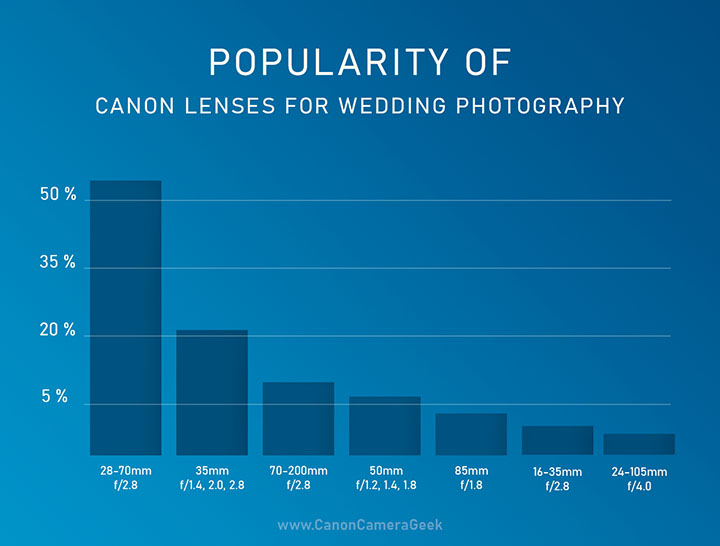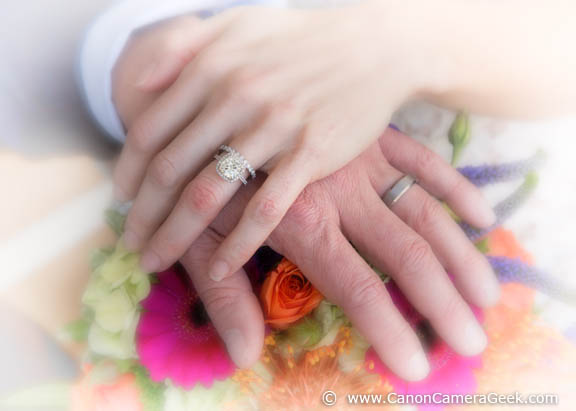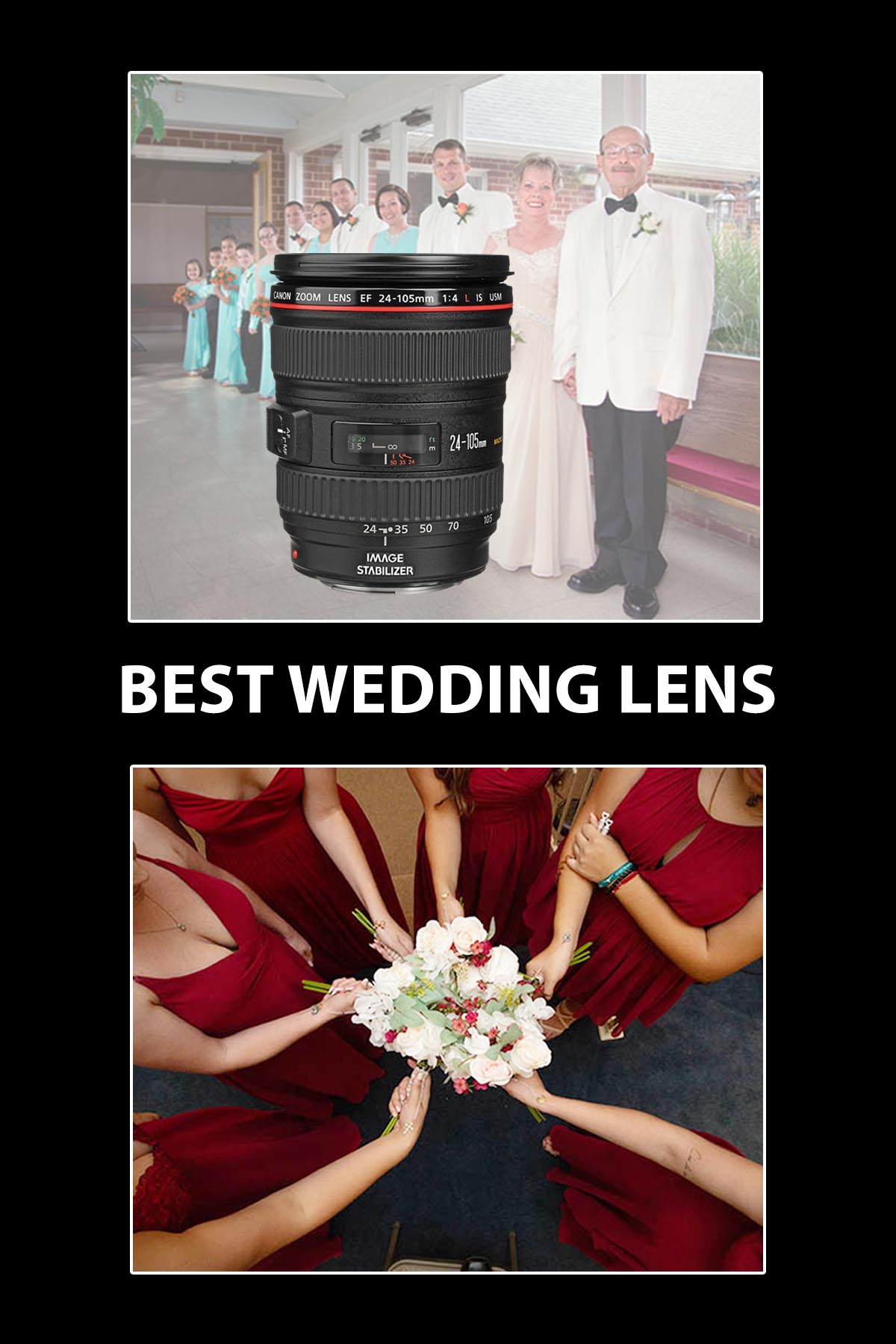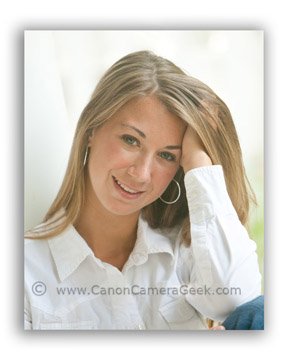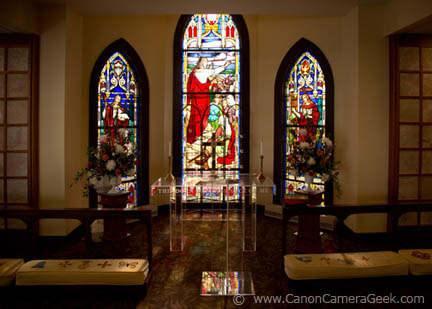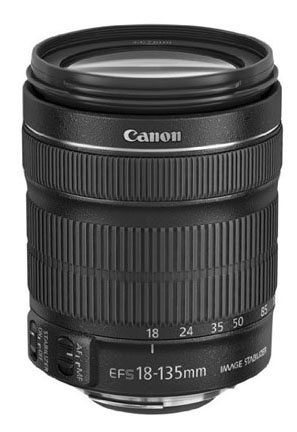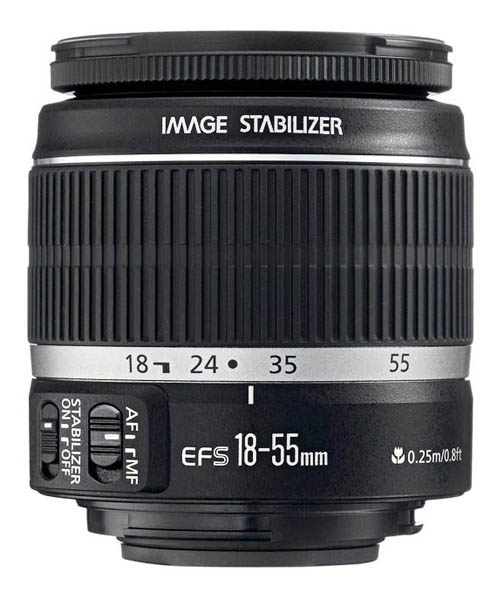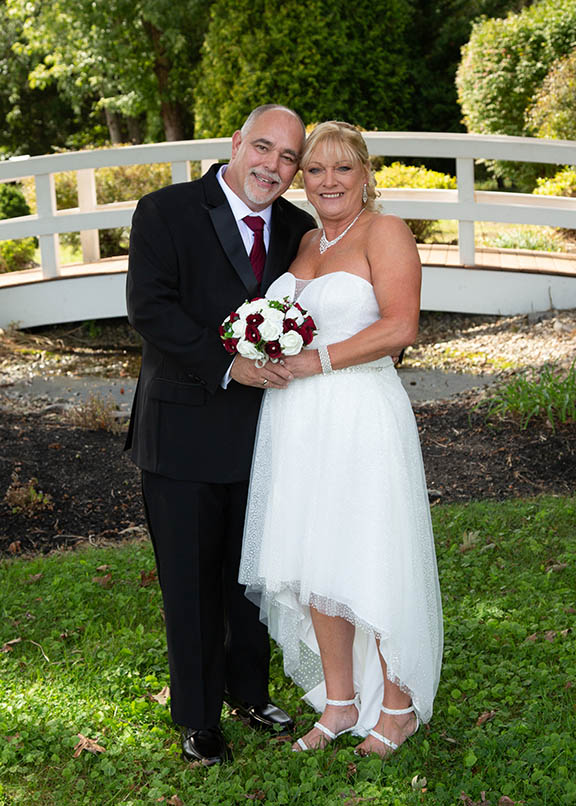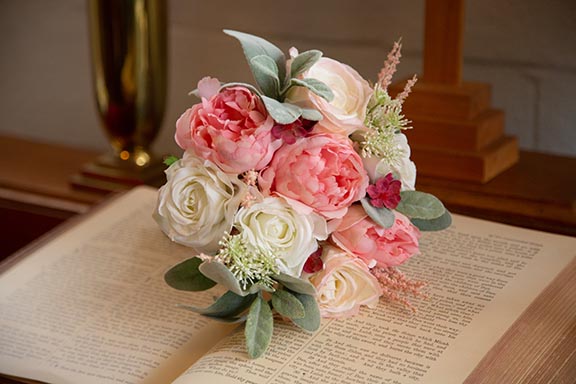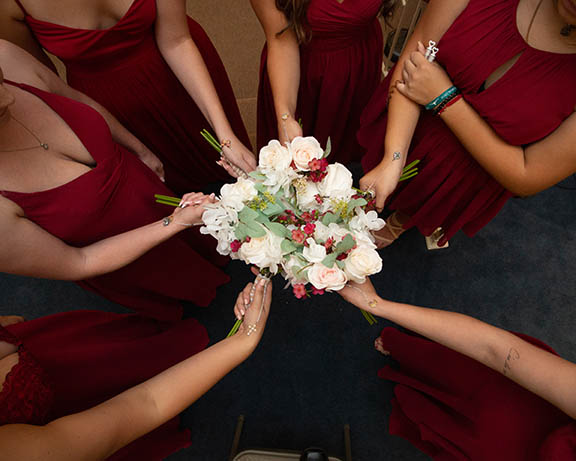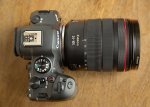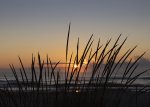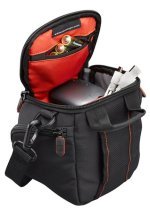Best Canon Lens for Wedding Photography
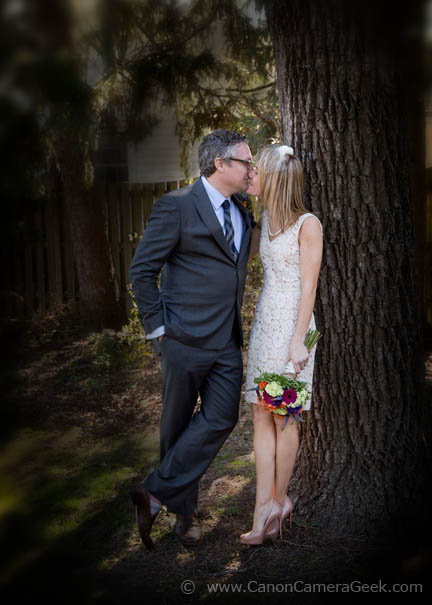 Wedding Photo
Wedding Photoby Bruce Lovelace
What's the best Canon lens for wedding photography? This post will help you decide what lens to choose when shooting a wedding.
It really depends on your level of expertise and what size Canon DSLR you use.
Pro wedding photographers choose Canon "L" lenses to fit their full-frame sensor Canon cameras. Enthusiast and beginning wedding photographers pick from the EF-S lenses made to fit APS-C "crop sensor cameras.
Look at this bar graph of the most popular Canon wedding lenses. The data was compiled from polling over 300 photographers.
I made this bar graph using data obtained by a survey done by SLRLounge.com. The percentages are of which lens was used to capture all of the images shot throughout a wedding. Professional wedding and event photographers were polled from the SLR Lounge community. Interestingly, my go to lens for shooting weddings is 7th out of 7 that made this list.
I have pro lenses made for my Canon 5d Mark III and can use those same lenses on my 70D.
I recently shot a wedding with only two lenses and it worked out perfectly. It was a really short affair, as it was the second marriage for both the bride and groom. As a general rule, a zoom lens is the single best lens you can use for wedding photography.
My Own Two Best Lenses for Wedding Photography
The Canon lenses I use for shooting weddings has changed a couple of times. I like to keep things simple. I only carry 2 lenses with me when I'm shooting a wedding. Each of them is attached to a camera.
A third, back-up lens is always in my camera bag. I used to shoot weddings with two 24-105mm f/4.0 lenses. All of the photos included in the post you're reading now were shot while using a 24-105mm lens and an 85mm f/1.8.
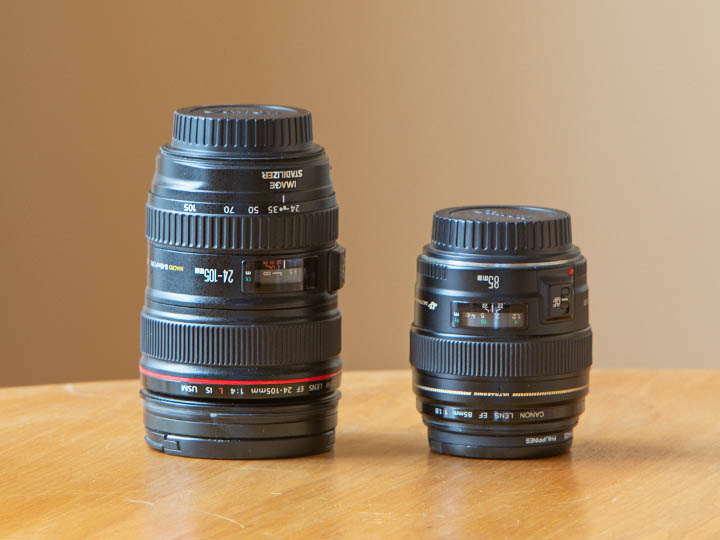 I shot this article's wedding with a 24-105mm f/4.0 and an 85mm f/1.8
I shot this article's wedding with a 24-105mm f/4.0 and an 85mm f/1.8I used my versatile 24-105mm f/4.0 for most of the photography, but also used my fast 85mm f/1.8 prime lens for existing light photography during the wedding inside the church. The f/1.8 lens is the fastest lens I own and is great for shooting in low light situations.
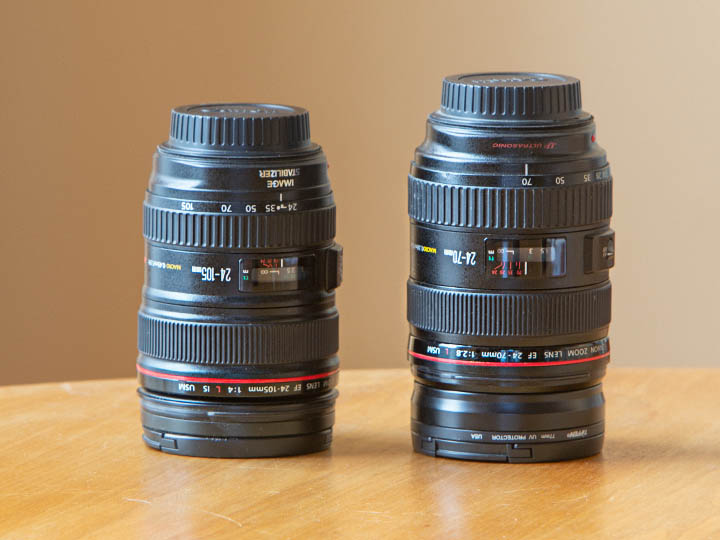 Now I shoot weddings with a 24-105mm f/4.0 and a 24-70 f/2.8
Now I shoot weddings with a 24-105mm f/4.0 and a 24-70 f/2.8The 24-70 f/2.8 is, by a large margin, the Canon lens used by wedding and event photographers more than any other.
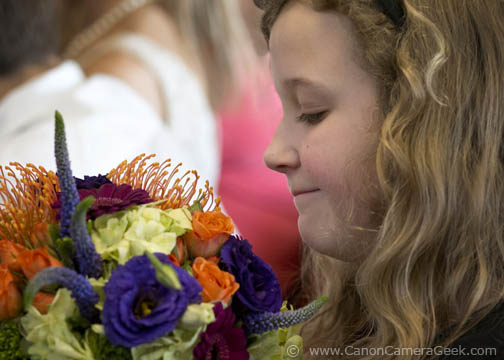 Wedding flower girl shot with the Canon 85mm f1.8 lens
Wedding flower girl shot with the Canon 85mm f1.8 lensIn the photo of the bride's daughter above, I shot at f/3.5. It gave me enough background blur of the bride's dress but still kept the girl's face and the flowers in good focus.
When I have a situation where I really desire an even shallower depth of field, I can open that lens all the way to f/1.8 and get terrific bokeh.
The 85mm is so light, so easy to carry and focuses really fast that it's a joy to use. It's also great to use with an APS-C camera like my EOS 70D because it gives a field of view like a 136mm lens. That's great for getting in close to your subject without interfering.
The 24-105mm lens is also good for close-up detail shots like the photo of the hands above, a photo of the invitation or even a macro image of the two wedding rings.
I've had my 70-200 f/2.8 Lens available for wedding photography, my absolute favorite for shooting portraits, but I really like to travel lightly when I shoot weddings.
I've seen the 70-200 used by a lot of professional wedding shooters and it gives you a lot of power to shoot from a distance, no doubt. I just like to keep things simple and light. That's just my personal preference.
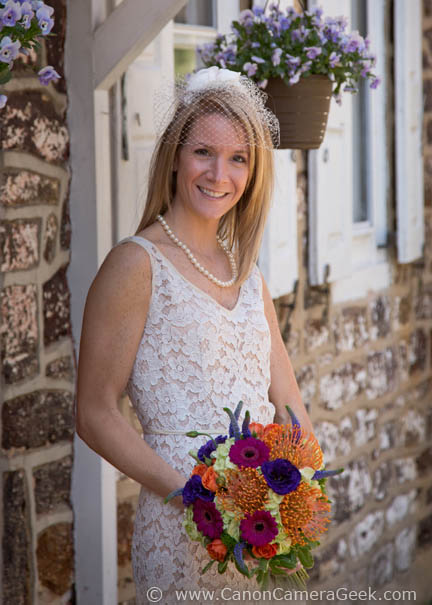 Wedding: Canon 24-105mm Lens at 105mm
Wedding: Canon 24-105mm Lens at 105mmAlthough I wouldn't classify the 24-105mm lens as a portrait lens, it has enough power at 105mm to create a pleasant perspective in mid-range distances. if I am taking headshots, I use the 85mm lens.
Best APS-C Canon Lens for Wedding Photography
If you shoot with an APS-C camera, and you only want to use just one single lens, which would be the one best wedding lens to use? I listed three lenses below and commented on each for it's value as a good lens for shooting weddings.
First, take a quick look at the most recent APS-C sensor cameras that can take the smaller, more affordable EF-S lenses to shoot weddings.
- Canon t3i
- Canon t4i
- Canon t5
- Canon t5i
- Canon t6s
- Canon t6i
- Canon t7i
- Canon t8i
- Canon 7D
- Canon 7D Mark II
- Canon 70D
- Canon 80D
- Canon 90D
- Canon 77D
- Canon SL1
- Canon SL2
- Canon SL3
As an Amazon affiliate Canon Camera Geek receives a small commission from qualifying purchases, at NO added cost to you.
- The 18-135mm. Has a nice 7.5x Zoom range, is affordable, and relatively lightweight. I recommend this lens above all others if your shooting with just one lens. CURRENT PRICE ON AMAZON
- The 18-200mm. Great zoom range but you get extra distortion because of the extreme range. CURRENT PRICE ON AMAZON
- The 17-55mm (f/2.8) lens. This is a nice "fast" lens-better than the "kit" lens. Wide enough but not long enough with a 28-88 (equivalent) zoom range. You "can" use this to photograph a wedding, but a lens with a longer telephoto setting is better for portraits. CURRENT PRICE ON AMAZON
- None of these lenses are of the same quality as one of the pro "L" lenses, but if you are shooting a wedding for a friend or a relative, the quality is adequate for you as a photo enthusiast. You'll still be able to record the day with a nice set of images.
Professionals who makes their living taking photographs spend the money and go with the Pro "L" lenses.
final remarks on the best canon lens for shooting weddings
If you're picking just one best Canon lens for shooting a wedding with your Canon DSLR, it has to be a quality zoom lens. It should be able to zoom out to a wide angle for group poses and venue photos.
Your wedding lens should also be able to zoom in for detail shots and close-ups.
Most wedding photographers shoot with two camera bodies. You should always have a back-up in case a camera fails.
Often the second camera body has either a specialty lens or one of the prime, non-zooming wedding lenses mounted to it.
I hope this article helped. See related posts below my signature below.
Have a blast. Shoot a Canon!

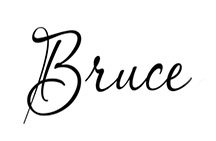
Bruce Lovelace is the publisher of Canon Camera Geek. Read more about him on the About Page. He also publishes how to articles and camera gear reviews at the Photography Tips website.
View some of Bruce's photos on Instagram and Flickr. Join the tribe of followers on YouTube. Bruce also runs photo workshops and provides 1 on 1 digital photography coaching.
Best wedding Lenses for full frame Canon CAMERAs
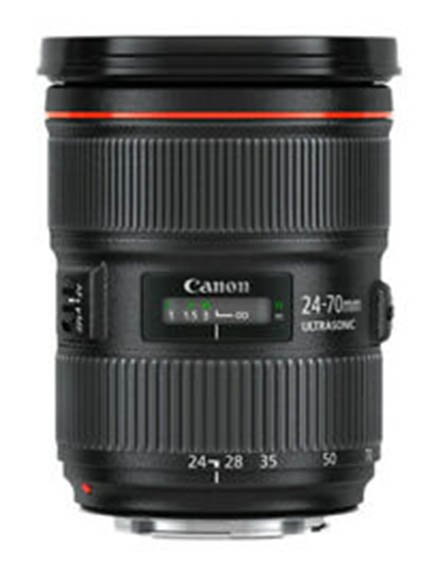 Canon 24-70 f/2.8
Canon 24-70 f/2.8Most Popular
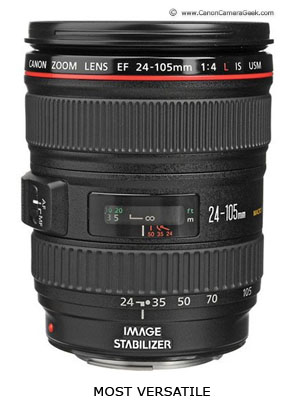 Canon 24-105mm f/4.0
Canon 24-105mm f/4.0Most Versatile
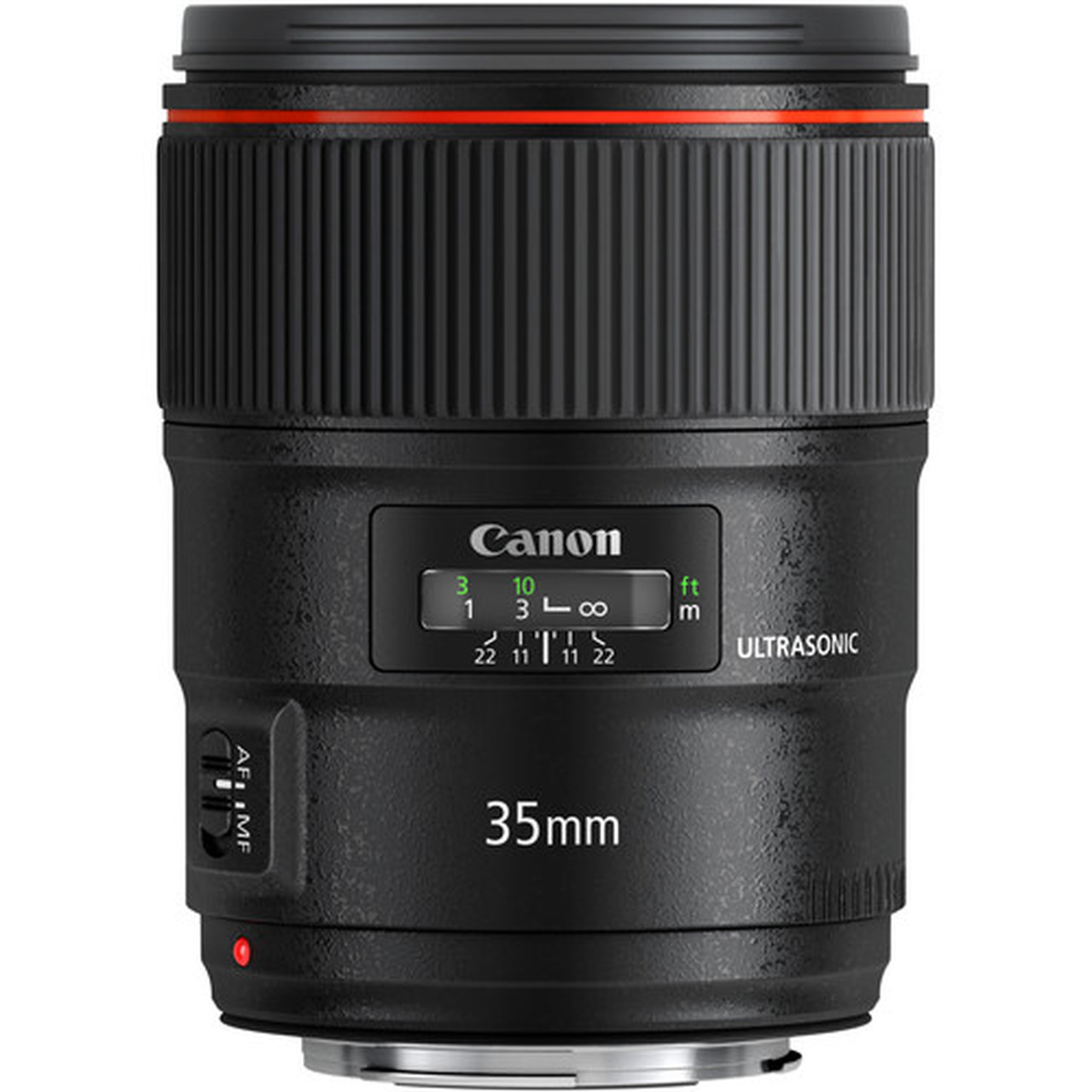 Canon 35mm f/1.4
Canon 35mm f/1.4Most Popular Prime
Recent Articles
-
My Review of The 10 Best Canon R6 Mark II Features That Impressed Me
Apr 12, 25 08:51 AM
Beyond the Pixel: Discover the Game-Changing Features That Make the Canon R6 Mark II a Must Have Camera -
Canon RF 24-105 Lens Comparison. Guide To Which One Is Right For You
Apr 07, 25 12:47 PM
Which is the best of the 3 versions of the Canon RF 24-105mm Lens for Canon mirrorless cameras? What's The 24-105 Lens Good For -
3 Better Alternatives to Camera Bags From Canon. Helpful Guide To Bags
Apr 03, 25 11:51 AM
After searching for the top best selling Canon bags, I found 3 better alternatives to camera bags from Canon
